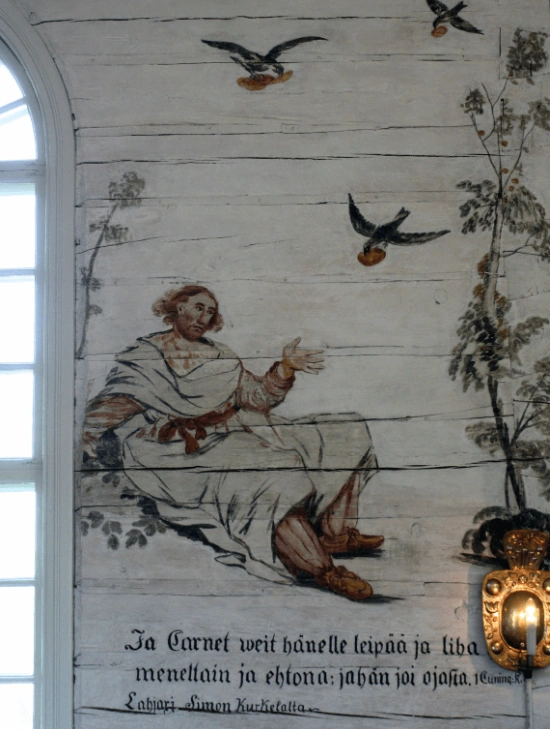5700. 'And for the Egyptians eating with him by themselves' means the separation of factual knowledge existing in an inverted state of order. This is clear from the representation of 'the Egyptians' as factual knowledge present in an inverted state of order, dealt with below; and from the meaning of 'eating with him by themselves' as a separation, dealt with immediately above in 5699. 'The Egyptians eating with him' means Egyptians who were eating at Joseph's house; yet it is evident that they did not do so with Joseph since it says that they ate 'by themselves'. In the good sense facts known to the Church are meant by 'Egypt' or 'the Egyptians', see 1462, 4749, 4964, 4966; but in the contrary sense facts existing in an inverted state of order, and so ideas contrary to the truths known to the Church are meant by them, 1164, 1165, 1186. And many places in the Word contain some reference to Egypt in this contrary sense. The reason why 'Egypt' means those facts existing in an inverted state of order is that the facts known to the Ancient Church which were the representatives and meaningful signs of celestial and spiritual realities, and which were fostered among those people more than others, were converted by them into magic. Consequently the facts known to the representative Church were brought by them into a completely inverted state of order.
[2] Facts are said to exist in an inverted state of order when people intent on doing what is evil violate heavenly order; for heavenly order intends that good should be done to everyone. The result of this therefore is that once people cause heavenly order to become inverted in this way they ultimately reject what is of God, what is of heaven, and consequently what constitutes charity and faith. People who have come to be like this know how to use factual knowledge to engage in keen and skillful reasoning; for their use of reason relies on sensory evidence, and reasoning reliant on sensory evidence relies on considerations of an external nature - on bodily and worldly matters which instantly absorb a person's thoughts and feelings. Unless such factual knowledge has had the light of heaven shed upon it and has thereby been brought into a completely different state of order, it sets the person in obscurity. This obscurity is so pronounced, so far as heavenly matters are concerned, that he not only fails to understand them but also utterly refuses to accept them, and at length casts them aside and, so far as he is allowed to do so, says blasphemous things about them. When factual knowledge exists in a proper state of order it has been arranged by the Lord into the same form as heaven takes. But when it exists in an inverted state of order it has been arranged into the form hell takes, a form in which the worst falsities are in the centre, supporting ideas come next, and truths on the outside. And as those truths are on the outside they cannot have any communication with heaven where truths are predominant. For this reason the interiors are closed, since it is through those interiors that the way to heaven lies open.







